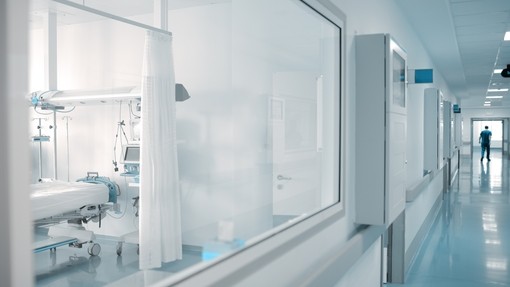COVID-19: New MHRA guidance and processes

Details
This article was updated on Wednesday 29 July 2020.
Following the outbreak of COVID-19 and the rapidly increasing need to provide urgent services and equipment, the Medicines and Healthcare products Regulatory Agency (MHRA) has released guidance on how manufacturers of medical devices may apply to supply test kits and non-CE marked devices for use in patient care, including ventilators. This has been produced in close consultation with the Department of Health and Social Care (DHSC) and is summarised below.
The MHRA has also published guidance on expedited applications for clinical trials relating to COVID-19, also summarised below.
Non-CE marked devices
In exceptional circumstances, such as those we now face, the MHRA may authorise manufacturers to place on the market or put into service a non-CE marked device in the interests of the protection of public health. The Medical Device Regulations 2002 allow for the fast-track approval of medical devices and these powers are being utilised in an effort to address the COVID-19 pandemic.
An application must be made to the MHRA via email with the information listed below, although the MHRA may request additional information when considering the application. It is expected that the evidence provided will demonstrate that the device performs as intended.
- Details of the product(s) (including model name and descriptor)
- Reasons why the product does not have a valid CE mark
- Clinical justification for requesting an exemption from the regulations for the product
- An explanation of any alternative products on the market and reasons why using these products would not be appropriate
- The number of product likely to be supplied under the exemption, plus an indication of how widely used the product is
- The expected time to gain/regain CE certification
The MHRA does not require an application to be made for the derogation of a CE-marked device where the change to intended use is limited. It is, however, expected that a risk assessment will be undertaken and that the manufacturer will contact their notified body for advice first.
For some medical devices, it will be necessary to obtain approval from the DHSC first, before applying to the MHRA. Only once approval is provided should the application to the MHRA be made. It is not overly clear which devices will require DHSC approval, although it is confirmed that ventilators will (see below). Manufacturers of other medical devices may not require DHSC approval; the MHRA gives the examples of surgical (medical) facemasks and examination or surgical gloves.
Ventilators
The MHRA has issued a specification for rapidly manufactured ventilator systems, setting out the minimally clinically acceptable ventilator to be used in UK hospitals during the pandemic. The guidance is available on the MHRA website. It is based on the opinion of anaesthesia and intensive care medicine professionals and medical device regulators, and is specifically for the use of devices in the initial care of patients requiring urgent ventilation.
Among other requirements, it must be demonstrated that the ventilator is compliant with essential safety standards. It is not anticipated that devices will be CE marked, and approval by the MHRA will be through the ‘exceptional use of non-CE marked medical devices’ route, as outlined above. DSCH approval must be obtained before the application to MHRA is made.
COVID-19 tests and testing kits
The Department of Health and Social Care issued a policy on the scaling up of testing programmes in April 2020. This confirms that the government are focused on two types of tests: ‘swab tests’ to detect where someone with symptoms has coronavirus; and ‘antibody tests’ to detect whether someone has had coronavirus. The policy then sets out the governments five-pillar strategy for scaling up the testing programme.
The government is now seeking proposals for reliable and accurate antibody testing that are scalable, resilient and scientifically robust.
To assist with the government’s strategy, the MHRA has issued a Target Product Profile (TPP) to assist manufacturers design and deliver coronavirus tests. The TPP has been developed to support pillar three of the UK-test strategy: mass-antibody testing to help determine if people have immunity to coronavirus. Pillar three relies on simply antibody tests used in community settings (and eventually in homes) to determine whether someone has had the virus and is now immune to it. The TTP confirms that how closely a product matches the TPP will assist with procurement and regulatory decision making and any deviation from existing standards must be fully justified.
The TPP sets out the clinical performance requirements for point of care and self-tests to be made and used in the UK. These requirements are based on the consensus of what is ‘minimally acceptable’ in the opinion of UK IVD industry, healthcare professionals and medical device regulators given the emergency situation. These include a scope, test design characteristics, performance characteristics, test procedure characteristics, operation characteristics, and ‘other’ requirements for both serology (antibody) point of care tests and serology (antibody) self-tests. Notably, both must be CE-marked (although the former may be ‘in [the] process of meeting EU regulatory requirements for in vitro diagnostic medical devices’).
If a manufacturer considers that they meet the TPP, or if a test looks promising, their proposal should be submitted via the DHSC portal. If a manufacturer has successfully navigated the DHSC evaluation process but does not yet have a CE mark, they can apply to the MHRA for a derogation (see paragraph above).
Clinical trials
The MHRA has confirmed that it is in a position to prioritise COVID-19 assessments and support manufacturers, researchers and other regulators since implementing procedures for rapid scientific advice, reviews and approvals. Applications should be submitted directly to the clinical trial helpline via email as well as through the usual Common European Submission Platform (CESP) route, which provides a simple and secure mechanism for exchange of information between applicants and regulatory agencies. The official acronym for the virus, COVID-19, should be included in the title field of the trial registration data set (Annex 1XML) to ensure trials relating to COVID-19 can be found and extracted easily.
For advice on any aspect of a clinical trial, the MHRA has provided the following contact details for its clinical trials unit: via email or +44(0)20 3080 6456.
The Health Research Authority (HRA) should also be contacted with regard to expedited ethics committee opinions. The HRA recently issued new guidance on COVID-19. This confirms that a fact track approval process is available for studies relating to COVID-19 where there are public health grounds for rapid review. The HRA has issued guidance on the fast-track process. The guidance confirms that new studies or amendments to existing studies will be accepted for fast-track review if they produce interim or final published results within one year, or are funded through the UK-wide NIHR call for COVID-19 Recovery and Learning. The process is managed by the HRA director of the approvals service or their delegate. Researchers should send requests be sent via email.
There is the possibility of existing studies being amended to address COVID-19 elements. The HRA has also issued guidance on making changes to a research study to manage the impact of COVID-19.
For further updates and other articles discussing the impact of the coronavirus please view our coronavirus hub.






